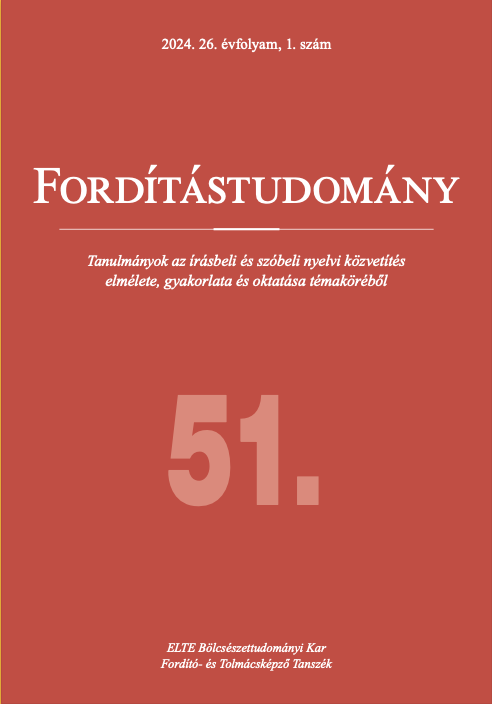Interpreting in an Ecclesiastical Setting from the Users’ Perspective
Abstract
The exploratory case study examines user expectations in an ec clesiastical setting and with the help of empirical data describes the role that users attribute to the interpreter in this context, the set of criteria by which they evaluate the actual interpretation and the qualities and skills they expect from language mediators. The questionnaires filled in by the participants of a pastoral conference organized by the Hungarian Catholic Church focused on interpreting in an eccle siastical setting in general and on the simultaneous interpreting provided in Italian and Hungarian at the specific ecclesiastical event. On the one hand, the findings confirmed empirical data published to date regarding user expectations, as re spondents assessed the quality of interpreting on the basis of fidelity and termino logical accuracy, but speech production was also a key feature for them. On the other hand, as a context specific expectation, they ranked the membership of the interpreter in the given religious denomination as important, thus to be present not only as a service provider but also as a participant, getting involved in the inter preted religious event with commitment and ministry.











1.png)
